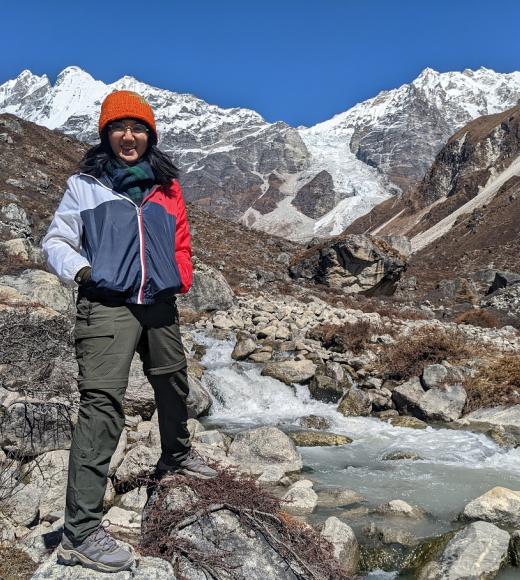
Position Title
PhD student
- Horticulture & Agronomy
Project
Alfalfa production holds significant economic value as a high-quality forage in the dairy and livestock sectors, and it plays a crucial role in reducing the environmental footprint of US agriculture. However, there are only a few studies that have quantified the carbon footprint of alfalfa production in holistic approach, limiting the transferability of their findings to livestock and forage operations. Additionally, as alfalfa is a perennial legume, it has the potential to store carbon and reduce fertilizer inputs, offering multiple ecosystem services that can offset greenhouse gas emissions.
Therefore, as part of my PhD research, I will conduct Life Cycle analysis to quantify the carbon footprint of rainfed alfalfa production systems holistically and also identify primary drivers of GHG emission in the system. The outcomes of this study will not only determine the net environmental impact of alfalfa production but will also provide strategies for environmentally sustainable and economically profitable management practices to farmers. Moreover, the findings can inform policymakers in their efforts to enhance state-led initiatives, including carbon markets and ecosystem markets, that incentivize farmers to foster sustainable practices. In addition, as another component of my PhD work, I will be collaborating with Myanmar Agriculture Policy Support Activity (MAPSA) under International Food Policy Research Institute (IFPRI) to conduct joint research that aim to enhance the resilience of farming systems in Myanmar in the face of economic shocks and climate change. This research is also supported by World Wildlife Fund through Russell E. Train Fellowship.
Background
Phoo earned a bachelor's degree in Biological Sciences with an Ecology track from the College of Wooster. After completing college, she joined Dr. Steven Cullman’s soil health lab at Ohio State University (OSU) as a Research Assistant and continued to earn her master’s degree in environmental sciences with the emphasis on soil science and agronomy. Her Master thesis focused on analyzing the effects of soil test levels and fertilization on tissue nutrient concentrations of major cash crops as well as determining grain nutrient removal rates across Ohio, which are directly used as updated state-wide recommended fertilizer rates.
After graduation, she returned to Myanmar to join IFPRI for experiential learning in socioeconomic and policy research in the field of international agricultural development. As a Research Analyst, she monitored the impacts of the pandemic and 2021 coup d'état on the agri-food value chain and provided evidence-based policy solutions for the resilience of Myanmar food system in the face of severe economic shocks.
Interest
My primary research interest revolves around developing best-fit management strategies under changing climate. I aim to address the agricultural factors that contribute to climate change while simultaneously providing strategies that optimize agricultural productivity, environmental sustainability, and socio-economic outcomes across varying climate scenarios. The overarching goals of my research are to equip farmers with sustainable practices at the on-farm level, offer policymakers science-based solutions for systemic changes, and provide private industry for effective interventions. To accomplish these goals, I am particularly interested in utilizing statistical models and geospatial data science tools, as they enable the analysis of scenarios, complexities, and uncertainties crucial for decision-making at the intersection of climate, crops, and economics.